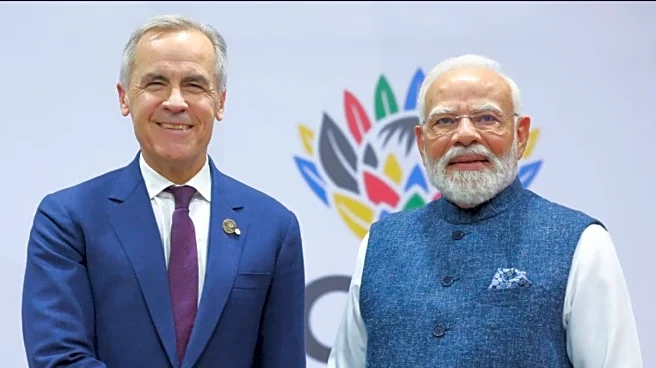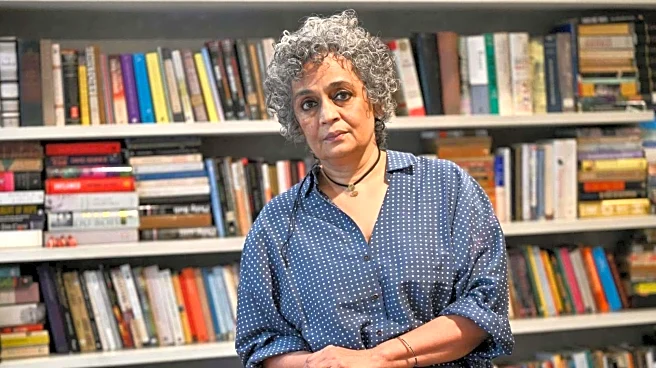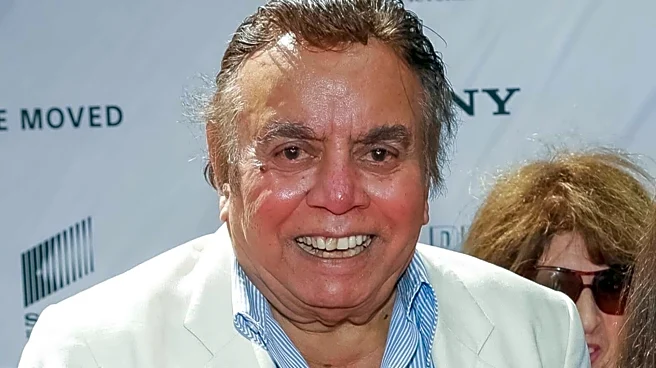Prime Minister Narendra Modi on Sunday held bilateral talks with his Canadian counterpart Mark Carney on the sidelines of the G20 Summit in South Africa, where they reviewed progress in the India–Canada
partnership.
During their discussion, Carney expressed support for the AI Summit to be hosted by India in February 2026, and they also agreed to begin negotiations on a high-ambition Comprehensive Economic Partnership Agreement (CEPA), aimed at doubling bilateral trade to $50 billion by 2030, according to an official statement by the Ministry of External Affairs.
The leaders also emphasised the importance of regular high-level exchanges. Prime Minister Modi extended an invitation to Carney to visit India. They also reaffirmed their longstanding civil nuclear cooperation and noted the ongoing discussions on expanding collaboration, including through long-term uranium supply arrangements.
Had a very productive meeting with Prime Minister Mark Carney of Canada. We appreciated the significant momentum in our bilateral ties since our earlier meeting held during the G7 Summit hosted by Canada. We agreed to further advance our relations in the coming months,… pic.twitter.com/lnuj2SGoWu
— Narendra Modi (@narendramodi) November 23, 2025
The two leaders welcomed the adoption of Australia-Canada-India Technology and Innovation (ACITI) Partnership which would give a boost to trilateral cooperation in the fields of critical technologies, nuclear energy, diversification of supply chains and AI. They appreciated the renewed momentum in ties since their June 2025 meeting in Kananaskis on the margins of the G7 Summit, and the launch of the New Roadmap for bilateral engagement by the Foreign Ministers in October 2025, as per the MEA.
The two countries attempt to rebuild relations following a brief period of tensions under Carney’s predecessor, Justin Trudeau, over the death of a designated Khalistani terrorist.
For decades, Canada has been a key destination for pro-Khalistan activists, and Canadian politics has often been shaped by the mobilisation and influence of the Sikh diaspora. A brief but sharp diplomatic rift was triggered by former Prime Minister Justin Trudeau’s allegation that India was involved in the killing of Hardeep Singh Nijjar, a designated Khalistani terrorist in India. Trudeau never produced evidence to substantiate his claim.
Carney, who replaced him, is now attempting to move past that period of tension and restore stable engagement with New Delhi. While addressing the Liberal caucus, he reportedly instructed his colleagues to maintain no contact with Khalistani leaders or related groups. His predecessor, Conservative leader Stephen Harper, also publicly called on Canadian political parties to cut ties with Khalistani separatist outfits.





/images/ppid_59c68470-image-177104254494215325.webp)

/images/ppid_a911dc6a-image-177104210287325129.webp)

/images/ppid_a911dc6a-image-177104202793221357.webp)
/images/ppid_a911dc6a-image-177104206710214315.webp)
/images/ppid_a911dc6a-image-177104202907093694.webp)
/images/ppid_59c68470-image-177104014803952296.webp)
/images/ppid_59c68470-image-177104006389961167.webp)
/images/ppid_a911dc6a-image-177103853218557950.webp)